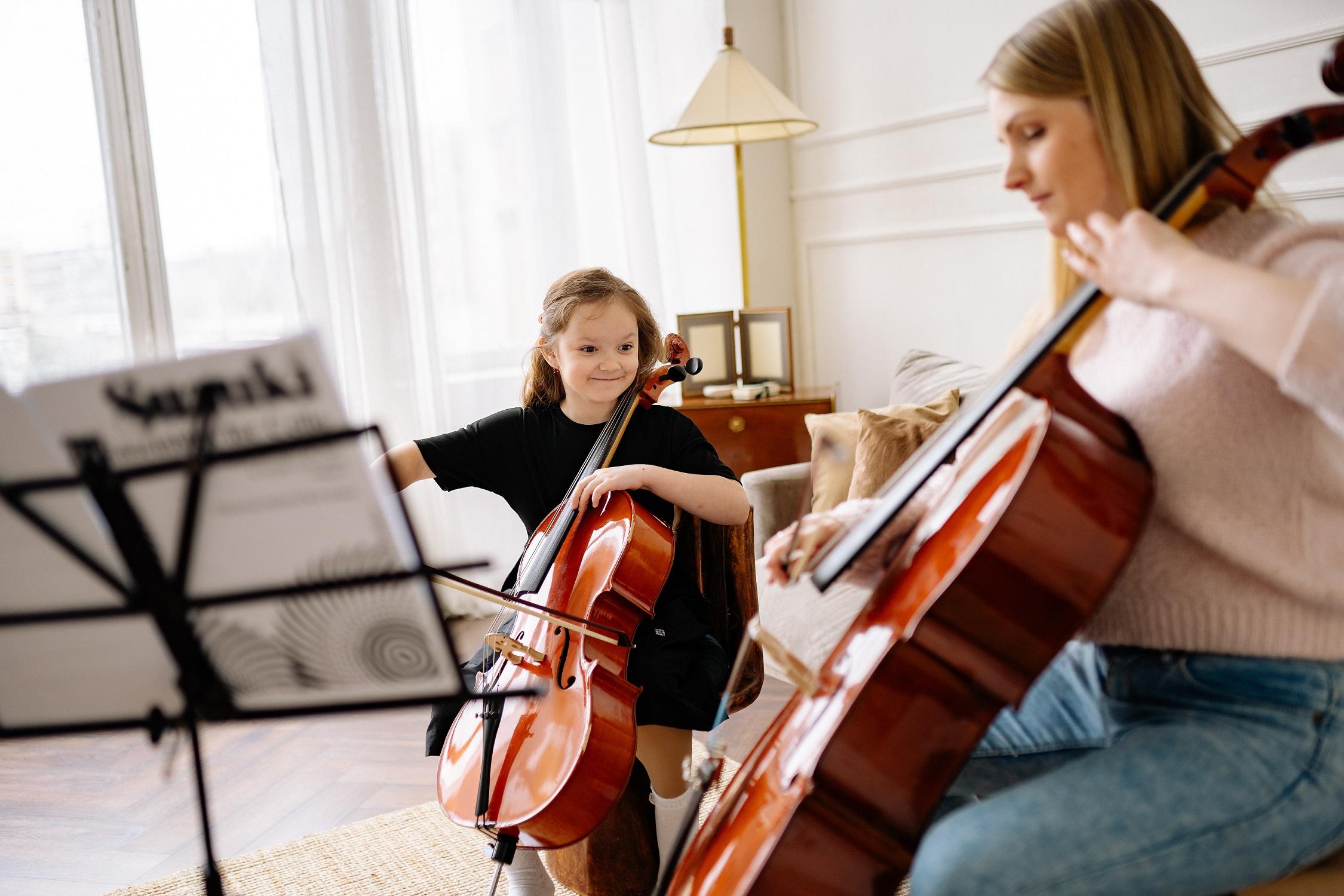


Private Music Lessons for my Children
2 February 2023
If your child wants to learn an instrument you can seek out a musician to teach them privately. These might be individuals teaching in their own home or who come to your house, who work at your children’s school, or part of a separate music school with premises and a group of teachers of various instruments.
Music Teachers and Lessons
Lessons cost from around £10 to £85 per hour. The teacher should be qualified and DBS (criminal record) checked. They might play professionally or work in an orchestra. You can search online, ask your children’s school or ask other parents for recommendations. Often schools have peripatetic music teachers who come into the school to teach, although your child may prefer to have lessons outside of school hours.
Usually lessons are once a week with pieces assigned to be practised daily through the week. The child will therefore require an instrument at home, either hired or bought. It’s important the child has a good rapport with the teacher in one-to-one lessons and it's a good idea to check in at the end of the lesson to see what is required between lessons and how they are progressing.
Which Instrument Should My Child Learn?
If your child isn’t sure what instrument they want to learn, there are some suggestions here. Choose the instrument that appeals to the learner most. Learning will take dedication so they are more likely to stick at it if they like the sound and music they produce.
Piano is a very popular choice but does not need to be the first instrument. Violin, flute and trumpet are all popular. Drums and piano usually show the quickest progress. Guitar, ukulele and violin can be started around the age of 6 as smaller versions of the instrument can be found. Recorders are cheap and super portable and a good stepping stone to other wind instruments like the flute and clarinet - many primary schools teach children to play the recorder. Trumpets take a good deal of guidance. Saxophones lend themselves to jazz, blues R&B and rock.
Should My Child Do Exams?
Lessons may follow exam curriculums through grades 1-8 or be less formal, just learning a repertoire of pieces. Guitar players who want to play in a band may simply want to learn songs and how to create their own music. Lessons may lead to an end-of-term performance in front of parents. The chance to perform in front of others is invaluable. It gives children something to work towards and gives them confidence.
Grades are designed to motivate children, giving them set goals and rewards. There are 8 levels. Grade 1 is set pieces whereas by grade 8 the musician will be expected to improvise, sight-read and have a thorough understanding of music theory. It is possible to start the grades at grade 5 if the student is skilled enough but after that they must be followed in sequence.
What Are The Benefits of Music Lessons?
There are many benefits to a child learning an instrument. It can improve their academic ability, including languages and maths. Discerning individual notes and sounds improves their ear for language. They develop their listening skills by paying attention to subtleties in sounds. Children develop physically from playing regularly with improved dexterity and coordination between the right and left sides of the body. They use muscles throughout their body.
Music helps youngsters with social skills. The dedication needed to learn an instrument teaches the value of discipline and patience in producing results. This brings a great sense of achievement that boosts self-esteem. Performing in public helps them with confidence in public speaking. And the beauty of the music brings joy.
